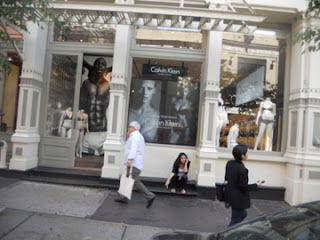Yesterday the price of cotton fell 3 cents to 91 cents per pound. So what? Oh, now the fiber costs more than 50% less than last March when it reached a peak of $2.15 per pound. How could that happen? How could the price of an important commodity fall so deep and so fast?
The answer: The price of cotton is strongly influenced by sentiment and speculation, because the raw material is traded on the financial markets like stocks, bonds or other commodities like oil. Producers, textile companies and commodity funds buy and sell futures on cotton (contracts to deliver cotton at a certain date in the future).
If they believe that cotton is getting more scarce the price of the future is rising, if they believe otherwise, the fiber gets cheaper. Many huge hedge funds and other speculators use the fluctuating price to set high bets on expected higher or lower cotton prices in the future and aggravate the price movements. "We are dealing with money, not with cotton," explained Keith Brown from the U.S. Broker Keith Brown and Co to Reuters.
From fall 2010 until spring 2011 the price of cotton more than doubled. Rumors and speculation about a expected shortage, which could cause further rising cotton prices, attracted many funds and other speculators. CottonMarketNews saw "signs that global supplies may not satisfy demand in China, the world’s biggest consumer"(
cottonmarketnews.com). In February CottonMarketNews was claiming that the "Cotton crisis (SIC) sends prices soaring" and asserted "a decrease in the cotton supply because of poor crops and reduced planting in response to the recession, rising labor costs in China and India, and renewed demand for apparel as the economy recovers, have combined to make cotton a hot commodity" (
cottonmarketnews). (The alleged combination of "recession" and "economy recovers" reminds me of Machiavelli, a master in manipulating the public opinion). One broker claimed "“We don’t have any cotton; everything you can get your hands on is worth gold right now.”
There also were widespread rumors of massive hoarding by cotton suppliers in India and elsewhere trying to get the highest possible price this season. Anticipation of higher prices would also push up demand and inventories in the textile and clothing pipeline, reported EmergingTextiles.com. The rising prices in this period drew more speculative buyers to the cotton market who just tried to benefit from the steeply upside trend, a typical snowballing effect based on the herding behavior of commodity funds.
It seems now that the bubble has burst. Now we get predictions that the demand for cotton should get weaker because of a projected slowdown in global economic growth in 2011 and 2012 (
danielstrading.com). In addition, the production of cotton is projected to demonstrably increase in important supplier countries like Pakistan, Australia and Turkey. We also got reports about higher-than-expected yields on Indian and Pakistani cotton crops.
This change doesn´t come unexpectedly. You could have read it in any basic economic textbook before. There you could learn that the demand for a good falls when its price is rising, because fewer buyers can afford the prices and switch to alternative products. For instance textile companies and their customers will buy more synthetic fibers instead of cotton. Otherwise the farmers respond to rising prices which indicate higher profits for them, by planting more cotton, maybe instead of other crops.
Therefore it isn´t surprising that cotton wasn`t the only bubble which happened to pop recently. For instance wheat ( represented by the ETF US12492G1040) is now traded at $588, and it reached a peak price of $886. A lot of other commodities like corn, coffee, rice, sugar and even oil are now significantly below the peaks reached this year.
We can learn from cotton that prices of most commodities can strongly separate from the reality (the fundamental facts), at least for some months. In the short term the price of cotton and other commodities is just a mirror of the sentiment and can be ruled by greed and fear, aggravated by Reuters and other media. These psychological factors can easily be manipulated by rumors spread by speculators who are well related and have good connections to the media.

















































